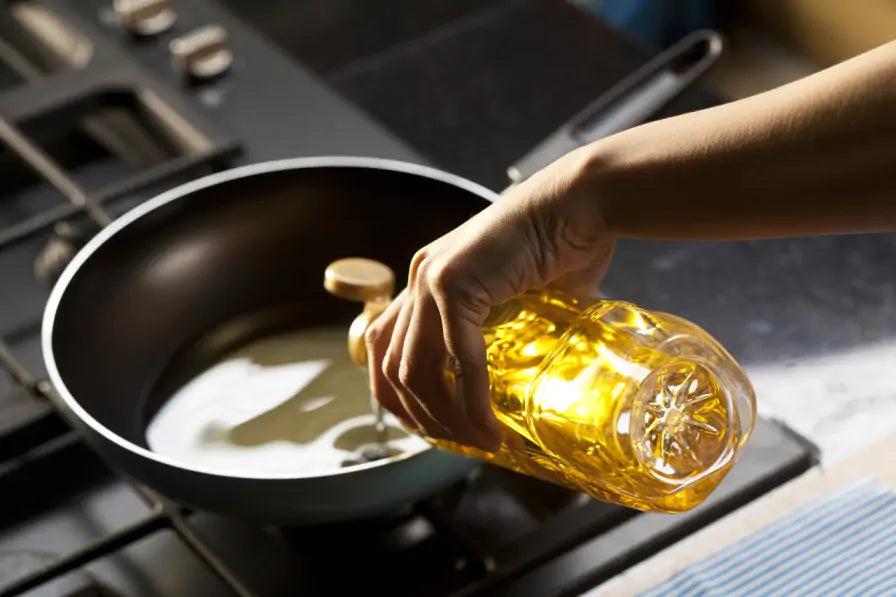Your basket is currently empty.
Shop NowDear Recycling Bins: Cooking Oil

Dear Recycling Bins: Our Weekly Recycling Advice Column
Welcome to our weekly advice column where we look at all things recycling and give you the answers you’re desperately seeking.
Dear Recycling Bins,
Here is my confession. I’m a bit of a whizz in the kitchen and I love cooking for my family and friends. The only problem is what I use when I’m cooking-cooking oil and lots of it. Most of the time I pour any excess down the sink, which I know is probably not the best thing to do.
I want to ask, is it really that bad if cooking oil goes down the sink, can it be recycled, and if so, where?
Your sincerely,
MasterChef in training
Dear MasterChef in training,
Cooking oil is one of the most common products found in kitchens and factories across the globe. In fact, we consume a staggering 200 million metric tonnes of the stuff every year!
You might love using your fancy cooking oil when you’re knocking up a stir fry, but do you know how many raw materials it uses and how many refining processes it has to go through to get there? The answer is a lot, and it’s not good for the environment.
That’s just the production. If we then think about all of the oil that ends up in the environment by being poured down drains or sinks, it can cause a lot of damage. Oil finds its way into rivers and oceans, killing marine life and disrupting ecosystems, and it can also build up in sewers, causing blockages and clogging up pipes.
So definitely stop putting your oil down the sink. You can put SMALL amounts of cooking oil into your food waste recycling. If you do not have access to a food waste recycling service, either take it to your local waste recycling centre (check your council’s website for information) or if it’s not accepted for recycling in your area, put it in a sealed container and place it in your general waste bin.
More councils are partnering with specialist recycling companies to recycle cooking oils. Most of the oils we use in the kitchen aren’t completely useless once they’ve been used, they’re just ‘dirty’ and need processing. When they’re recycled, they can actually be turned into a valuable commodity such as biofuels.
Far fewer resources are needed to produce fuel from recycled oils, and biofuels can be used in many industries.
We hope this helps,
Recycling Bins.






